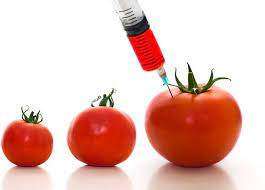GMO foods or Genetically Modified Organisms are living organisms whereby genes have been altered in a way known as bioengineering. GMOs can either be animals or bacteria. However, the most often are crops such as corn, and potatoes. These crops have been pulled in the lab to increase the quantity or quality of their produce. So, it is a special set of gene technology that changes the genetic machinery of living organisms such as plants, animals, and microorganisms. It combines genes from a different organism which is known as recombinant DNA technology.
Advantages

- A lot of GMO crops are modified not to be vulnerable to insects and some pests. For instance, Bacillus thuringiensis is a naturally occurring soil bacteria. So, BT-corn, in which it exists is a GMO crop with the gene added to it hence less attack.
- The gene also makes the corn produce a type of protein that kills several insects, and pests. This helps in protecting the corn from being attacked. Therefore, there is no need to spray the plant.
- GMOs are cheaper, this is because the same amount of food can be produced using a smaller piece of land, little water, and the least amount of pesticides than conventional ones.
- GMO crops have a longer shelf life. Therefore, transporting them is easier at greater distances. This helps in making it possible for foods to reach different communities even those that may be experiencing food shortage
- It produces foods that are appealing to eat because colors can be improved or changed eaten. Deeper colors like red make food look sweeter. This is a brain perception.
- It becomes easy to predict food supplies. This is because crop yields are also predictable. Therefore, it helps in reducing the presence of food deserts in the world.
Disadvantages of GMO foods
- These foods may bring about antibiotic resistance in our bodies. This is because they are modified to comprise antibiotics and items that kill pests and germs. However, it lowers the effectiveness of antibiotics and some other medication that may be needed in their traditional sense. It may therefore result in an illness that is more difficult to cure.
- Sharing of a field among plants including weeds may bring about gene migrations. It happens when genes from herbicide-resistant plants enter the weed that it is designed to kill. This may bring complications to crop growth in the future. The problems may be greater than their benefits. For instance, if dozens of weeds became resistant.
- Farmers that grow GMO crops could also face liabilities for letting seeds go to other fields or allowing cross-pollination to occur. People growing GMOs may be at a risk of facing the law since, through cross-pollination, the crops may spread to non-GMO practicing farms.
- Some of these foods have a carcinogen exposure risk. Research showed that crops that tolerate commercial pesticides have a high chance of increasing the risk of cancer development
- Best Public High Schools in Kiambu County.
- List of Accredited Private Universities in Kenya
- Public Universities in Kenya
- Kenya Medical Training College, courses, requirements.
- List of Best private secondary schools in Nairobi County.
- Egerton university, fees, location, courses.
- What is the history of Kenyatta University?